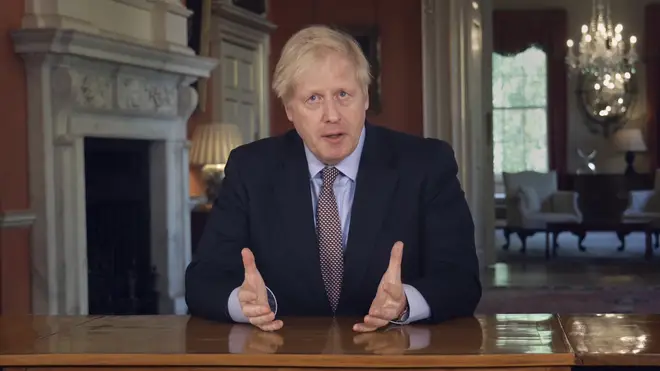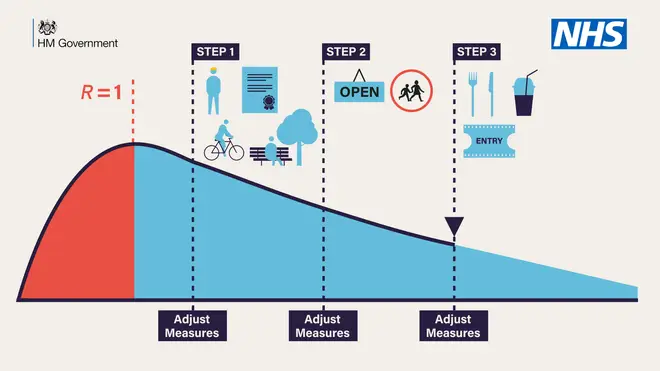On Air Now
Heart's Club Classics with Pandora Christie 7pm - 11pm
11 May 2020, 15:01 | Updated: 11 May 2020, 15:47

The Government have published a detailed plan of how they aim to ease us out of lockdown amid the coronavirus pandemic.

Boris Johnson reveals his end of lockdown plan in-full
On May 11, Prime Minister Boris Johnson published his 50-page plan detailing how we will move out of the lockdown stage safely and avoid a second peak of the virus claiming more lives across the UK.
The new plan details information about people heading back to work, when schools could open and when we might be able to see friends and family members.
In the foreword of the document, Boris wrote: "This document sets out a plan to rebuild the UK for a world with COVID-19. It is not a quick return to 'normality.' Nor does it lay out an easy answer.
"And, inevitably, parts of this plan will adapt as we learn more about the virus. But it is a plan that should give the people of the United Kingdom hope.
"Hope that we can rebuild; hope that we can save lives; hope that we can safeguard livelihoods."

Here are the main points made in Boris' lockdown exit plan:
- People will have to wear face coverings on public transport and where they can't be two meters apart
- People will have to wear face covering in some stores
- Non-essential retail could open no earlier than June 1
- Cultural and sporting events, like the Premier League, will take place but behind closed doors and with no crowds
- Other businesses such as hairdressers, restaurants, pubs, cinemas, beauty salons and places of worship could open from July 4
- Government want all primary school children to be back at school for one month before summer holidays start
- Public are allowed to go outside for leisure reasons, but not stay anywhere overnight or for a holiday
- Smaller children can start going back to their childminders and nurseries when schools reopen
- Fines for breaking lockdown will be increased from £60 to £100
- People in England can drive to parks and beaches, but only with members of the same household and you can not cross into Wales or Scotland
- Staff in food production, construction, logistics, distributions, scientific research and manufacturing to return to work
- Paid childcare is allowed to begin again
READ MORE: Can cleaners work in homes during lockdown? Latest government advice
READ MORE: What is the UK government's advice on wearing face masks?